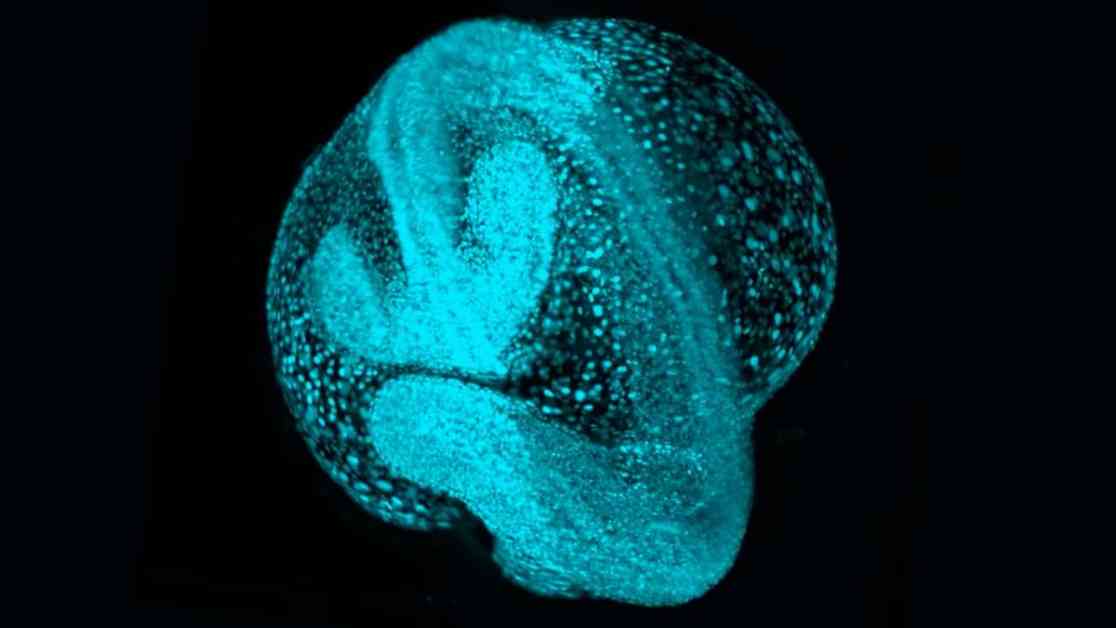A new atlas of embryos has been created using timelapse videos of zebrafish embryos developing under a microscope. The atlas, called Zebrahub, provides a detailed look at the movements and growth of cells during different stages of development. This groundbreaking project combines high-resolution videos with data on gene activity, shedding light on the building blocks of life.
Zebrahub offers a unique perspective on developmental biology, showcasing the early stages of life when all embryos share similarities in shape, genes, and molecular processes. The project aims to uncover key insights into how organisms are built and how they develop over time. By studying zebrafish embryos, which share many genes with humans, researchers hope to gain a better understanding of birth defects, regeneration capabilities, and the aging process.
The development of Zebrahub required innovative techniques for studying embryos, including a new microscope that captures images without harming the delicate organisms. By tracking cell movements in 3D space and analyzing gene activity at the single-cell level, researchers were able to identify previously overlooked cell types and pathways. This level of detail provides a comprehensive view of embryo development and offers new opportunities for scientific discovery.
While the current dataset in Zebrahub is based on two sets of embryos, researchers are working to integrate this information to create a more cohesive understanding of gene expression and cell behavior. Already, scientists are using Zebrahub as a resource for studying human conditions, such as cataract formation in the eyes. By leveraging the insights gained from zebrafish embryos, researchers can apply this knowledge to human health and disease.
The development of Zebrahub represents a significant advancement in the field of developmental biology, offering a wealth of data and tools for researchers to explore. By unlocking the mysteries of embryo development, scientists hope to gain valuable insights into human biology and pave the way for new discoveries in health and medicine. Stay tuned for more updates on the exciting research coming out of the Zebrahub project.










